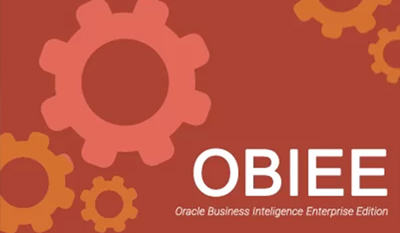Syllabus of Hadoop Course
Apache Hadoop
- Introduction to Big Data & Hadoop Fundamentals
- Dimensions of Big data
- Type of Data generation
- Apache ecosystem & its projects
- Hadoop distributors
- HDFS core concepts
- Modes of Hadoop employment
- HDFS Flow architecture
- HDFS MrV1 vs. MrV2 architecture
- Types of Data compression techniques
- Rack topology
- HDFS utility commands
- Min h/w requirements for a cluster & property files changes
Module 2 (Duration :03:00:00)
MapReduce Framework
Goal: In this module, you will understand the Hadoop MapReduce framework and the working of MapReduce on data stored in HDFS. You will understand concepts like Input Splits in MapReduce, Combiner & Partitioner and Demos on MapReduce using different data sets.
Objectives – Upon completing this module, you should be able to understand MapReduce involves processing jobs using the batch processing technique.
- MapReduce can be done using Java programming.
- Hadoop provides with Hadoop-examples jar file which is normally used by administrators and programmers to perform testing of the MapReduce applications.
- MapReduce contains steps like splitting, mapping, combining, reducing, and output.
Topics:
Introduction to MapReduce
- MapReduce Design flow
- MapReduce Program (Job) execution
- Types of Input formats & Output Formats
- MapReduce Datatypes
- Performance tuning of MapReduce jobs
- Counters techniques
Module 3 (Duration :03:00:00)
Apache Hive
Goal: This module will help you in understanding Hive concepts, Hive Data types, Loading and Querying Data in Hive, running hive scripts and Hive UDF.
Objectives – Upon completing this module, you should be able to understand Hive is a system for managing and querying unstructured data into a structured format.
- The various components of Hive architecture are metastore, driver, execution engine, and so on.
- Metastore is a component that stores the system catalog and metadata about tables, columns, partitions, and so on.
- Hive installation starts with locating the latest version of the tar file and downloading it in the Ubuntu system using the wget command.
- While programming in Hive, use the show tables command to display the total number of tables.
Topics:
Introduction to Hive & features
- Hive architecture flow
- Types of hive tables flow
- DML/DDL commands explanation
- Partitioning logic
- Bucketing logic
- Hive script execution in shell & HUE
Module 4 (Duration :03:00:00)
Apache Pig
Goal: In this module, you will learn Pig, types of use case we can use Pig, tight coupling between Pig and MapReduce, and Pig Latin scripting, PIG running modes, PIG UDF, Pig Streaming, Testing PIG Scripts. Demo on healthcare dataset.
Objectives – Upon completing this module, you should be able to understand Pig is a high-level data flow scripting language and has two major components: Runtime engine and Pig Latin language.
- Pig runs in two execution modes: Local mode and MapReduce mode. Pig script can be written in two modes: Interactive mode and Batch mode.
- Pig engine can be installed by downloading the mirror web link from the website: pig.apache.org.
Topics:
- Introduction to Pig concepts
- Pig modes of execution/storage concepts
- Pig program logics explanation
- Pig basic commands
- Pig script execution in shell/HUE
Module 5 (Duration :03:00:00)
Goal: This module will cover Advanced HBase concepts. We will see demos on Bulk Loading, Filters. You will also learn what Zookeeper is all about, how it helps in monitoring a cluster, why HBase uses Zookeeper.
Objectives – Upon completing this module, you should be able to understand HBaseha’s two types of Nodes—Master and RegionServer. Only one Master node runs at a time. But there can be multiple RegionServersat a time.
- The data model of Hbasecomprises tables that are sorted by rows. The column families should be defined at the time of table creation.
- There are eight steps that should be followed for the installation of HBase.
- Some of the commands related to HBaseshell create, drop, list, count, get, and scan.
Topics:
Apache Hbase
- Introduction to Hbase concepts
- Introduction to NoSQL/CAP theorem concepts
- Hbase design/architecture flow
- Hbase table commands
- Hive + Hbase integration module/jars deployment
- Hbase execution in shell/HUE
Module 6 (Duration :02:00:00)
Goal: Sqoop is an Apache Hadoop Eco-system project whose responsibility is to import or export operations across relational databases. Some reasons to use Sqoop are as follows:
- SQL servers are deployed worldwide
- Nightly processing is done on SQL servers
- Allows to move a certain part of data from traditional SQL DB to Hadoop
- Transferring data using the script is inefficient and time-consuming
- To handle large data through Ecosystem
- To bring processed data from Hadoop to the applications
Objectives – Upon completing this module, you should be able to understand Sqoop is a tool designed to transfer data between Hadoop and RDBs including MySQL, MS SQL, Postgre SQL, MongoDB, etc.
- Sqoop allows the import data from an RDB, such as SQL, MySQL or Oracle into HDFS.
Topics:
Apache Sqoop
- Introduction to Sqoop concepts
- Sqoop internal design/architecture
- Sqoop Import statements concepts
- Sqoop Export Statements concepts
- Quest Data connectors flow
- Incremental updating concepts
- Creating a database in MySQL for importing to HDFS
- Sqoop commands execution in shell/HUE
Module 7 (Duration :02:00:00)
Goal: Apache Flume is a distributed data collection service that gets the flow of data from their source and aggregates them to where they need to be processed.
Objectives – Upon completing this module, you should be able to understand Apache Flume is a distributed data collection service that gets the flow of data from their source and aggregates the data to sink.
- Flume provides a reliable and scalable agent mode to ingest data into HDFS.
Topics:
Apache Flume
- Introduction to Flume & features
- Flume topology & core concepts
- Property file parameters logic
Module 8 (Duration :02:00:00)
Goal: Hue is a web front end offered by the ClouderaVM to Apache Hadoop.
Objectives – Upon completing this module, you should be able to understand how to use hue for hive, pig,oozie.
Topics:
Apache HUE
- Introduction to Hue design
- Hue architecture flow/UI interface
Module 9 (Duration :02:00:00)
Goal: Following are the goals of ZooKeeper:
- Serialization ensures avoidance of delay in reading or write operations.
- Reliability persists when an update is applied by a user in the cluster.
- Atomicity does not allow partial results. Any user update can either succeed or fail.
- Simple Application Programming Interface or API provides an interface for development and implementation.
Objectives – Upon completing this module, you should be able to understand ZooKeeper provides a simple and high-performance kernel for building more complex clients.
- ZooKeeper has three basic entities—Leader, Follower, and Observer.
- Watch is used to get the notification of all followers and observers to the leaders.
Topics:
Apache Zookeeper
- Introduction to zookeeper concepts
- Zookeeper principles & usage in Hadoop framework
- Basics of Zookeeper
Module 10 (Duration :05:00:00)
Goal:
Explain different configurations of the Hadoop cluster
- Identify different parameters for performance monitoring and performance tuning
- Explain the configuration of security parameters in Hadoop.
Objectives – Upon completing this module, you should be able to understand Hadoop can be optimized based on the infrastructure and available resources.
- Hadoop is an open-source application and the support provided for complicated optimization is less.
- Optimization is performed through XML files.
- Logs are the best medium through which an administrator can understand a problem and troubleshoot it accordingly.
- Hadoop relies on the Kerberos based security mechanism.
Topics:
Administration concepts
- Principles of Hadoop administration & its importance
- Hadoop admin commands explanation
- Balancer concepts
- Rolling upgrade mechanism explanation
Hadoop Training Course Highlights
1) Our Training Center batch sizes are generally very small size 3-5 members OR 1 to 1 also, so students receive direct, hands-on training from us.
2) 100% practical training only. It is not a slide show training program / theory class program.
3) At the end of this class, definitely you will refer your colleagues / friends / relatives for our training.
4) Conducting regularly online Hadoop training for US peoples in all time zones (PST,CST,EST,HST,MST)
5) Installation of Softwares in your desktop / laptop will be done.
6) Will be provided self evaluation testing software, exam simulator, dumps & books with this training.
7) Continuous support is provided for any of your on-site problems. Assistance will be provided and you will be recommended to some of IT development firms.
Why Enroll with IICT for Hadoop Training Course ?
1) Two days free trial - If candidate likes this course, these days are adjusted in his actual schedule.
2) Live Project Exposure of Fortune companies.
3) Training by Subject Matter experts from CMM Level 5 companies
4) Both Online and Classroom Training offered at Hadoop
5) Our basic course worth more than the advanced course of other institutes/freelancers.
6) Free Interview preparations.
7) 100% free assistance for Hadoop certifications.
8) Practical and Hands on Training for Hadoop Course .
9) 100 % guarantee in succeeding the certification at affordable fees.
10) Also provide online training to students of foreign countries.




